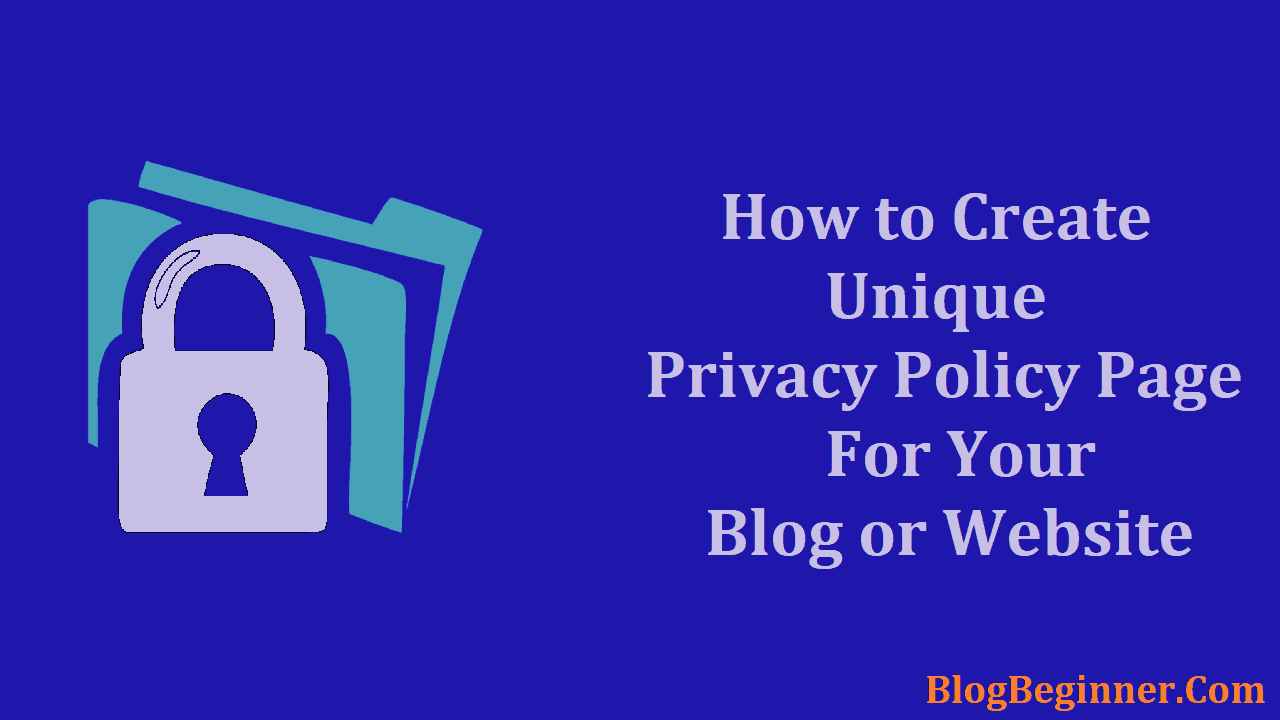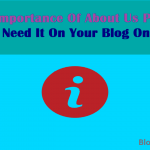One of the best ways to monetize your blog in the early stages is the revenue you’d collect from Adsense. For that, one needs approval.
The approval process would mean appraisal of a mix of things, one of the most important of which is gonna be your Privacy Policy.
Getting the Privacy policy right is imperative to gain credibility and it generates a sense of trustworthiness.
If you want your blogging business to scale, a privacy policy is a must.
Contents In Page
How To Create A Privacy Policy
While many bloggers opt for writing the privacy policy themselves, there are alternatives like third party privacy policy generators that can make the task easy for you.
One such service is provided by SerpRank.
- Visit the website and its privacy policy generator page.
- Fill in the site URL and your email address.
- Select on the use cookies option.
- Select your advertising solutions – Adbrite, Widget Bucks, Adsense, among many others.
- Simply click on create my privacy policy to continue.
For Blogger Blogs
- Simply add a new post.
- Title it “privacy policy”.
- Publish the page.
It can be difficult to pin down the exact strategy for your privacy policy. A good place to start would be to take a brief look at the privacy policies of other websites of your niche. For example, if your website is music-centric, try billboard.
Why Is It Important?
It is a legal agreement which would let your readers know:
- All the personal information that you might collect from them while they make the visit to your website, that includes names, and sometimes sensitive information if any, like passwords.
- How the information is collected.
- Why such information is collected and if it is fed to any third party or not.
It is also important that you include a redressal option for the customers so that they can contact the user in case the policy is not met.
It is always a good option to provide certain important details like email address and contact information on every page of every post.
Since it is a legal agreement, it is compliant with the law, which can be different in different countries:
- CalOPPA in the US.
- PIPEDA in Canada.
- DPA in the UK.
- Privacy act 1988 in Australia.
- IT Act of 2000 in India.
Important Clauses
These are some of the must-have clauses for your Privacy Policy:
- Collection of Information and its Usage
How the personal information is collected with every visit, what information is collected and how it is used, are some of the things that are best included in this section.
Also, include who can view the information of the visitors.
- Log Data
This is the data that is automatically collected by the browser and it is best to include it in the policy.
- Cookies
Nowadays, almost all the websites make use of cookies, if you do too, it needs to be included in the policy. It also happens to be a requisite according to the EU Directive. Besides, it is also mandated by some third parties such as Adsense.
- Links to Other Sites
A successful blogger knows that outbound links are important for SEO and since you are going to include them on your websites, and mostly on posts, thus, it needs to be acknowledged.
- Privacy Policy Generators
Since the privacy policy can sometimes can too technical, there are many policy generators to the rescue:
- Privacy Policy
It is free for personal use and offers a nominal fee for business establishments, businesses need to have a more comprehensive policy. The template they offer can be altered for your personal specifications and it is a very popular choice.
- Shopify
Along with the privacy policy, it can also help you generate a return policy (for businesses) and also the terms of service.
- TermsFeed
Sometimes your legal agreement needs to be customized, in such cases, the best option can be TermsFeed.
- Free Privacy Policy
This is especially useful for personal use, it can help you set up the right policy within 15 minutes.
- Privacy Policy Online
Another popular site, which covers the requirements of affiliate marketing companies such as Adsense. Besides, there can also be some relevant regulations for small businesses that it can handle with ease.
- IUBENDA
Sometimes it is best to include multiple languages for the policy, this is especially true if you have a more diverse visitor base. IUBENDA helps you with your policy in about 10 languages.
- Trust Guard
If you need help with a trust seal on your website, then Trust Guard is the right website.
- SEQ LEGAL
Exclusive to customers in the UK, it can help you with custom and simple templates as per your use.
- Virginia Tech
It provides a good explanation for your choice of privacy policy, with special attention to your custom needs.
- GET TERMS
It helps you set up your policy within minutes. This is especially good for personal use as the as you only need to fill out a few fields.
- AUTO TERMS OF SERVICE AND PRIVACY POLICY
It is a policy generator offered by WordPress plugin. It is easy to use and hassle-free.
- 3DCART PERSONALIZED PRIVACY & RETURN POLICY GENERATOR
It can be used for more small and medium businesses and it offers e-commerce software for easy handling.
A good privacy policy is the one that offers maximum disclosure and generates trust with its user base.
The language that you use should be simple to understand not very verbose. It is best not to hide anything, that is, try to include as much as you can and be transparent.
For businesses that offer services or products, it would be unseemly to make use of simple templates that have not been customized for individual needs.
For example, if you deliver products, it is important that the return policy, among many others, are included and offer full transparency.








